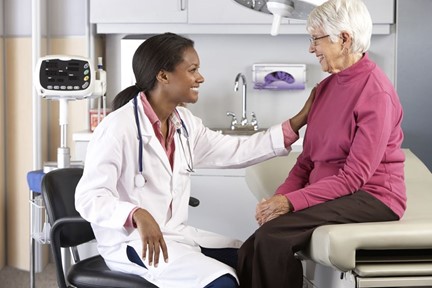Signs and Symptoms of Sepsis
According to the Centers for Disease Control and Prevention, nearly 1.7 million adults in American contract sepsis, an infection complication, each year. In fact, according to the World Health Organization, sepsis-related deaths account for nearly 20% of deaths worldwide. Even though sepsis is common and can be life-threatening, sepsis is a preventable disease. With the proper knowledge around what sepsis is and how it spreads, you can significantly lower your chances of contracting it. That’s why, in honor of Sepsis awareness month, we’ve compiled a comprehensive guide to understanding the signs and symptoms of sepsis.
What is Sepsis? 
Sepsis is a life-threatening complication to an infection. It typically occurs when an infection isn’t promptly treated or properly taken care of. Although anyone can get sepsis, those aged 65 and older are 13 times more likely to be hospitalized with sepsis, according to the Sepsis Alliance. Unfortunately, as we grow older, our bodies become less effective at fighting infections, resulting in higher cases of sepsis among older adults. Any infection can result in sepsis, however, pneumonia, kidney infections and bloodstream infections tend to lead to sepsis at higher rates than other infections, especially in seniors. Additional risk factors include those with chronic medical conditions or weakened immune systems.
What are the Signs and Symptoms of Sepsis?
Sepsis can’t happen without an existing infection, although infections aren’t always easily noticeable. Infections can occur in anything from a reaction to the flu or a simple skin tear from dry or fragile skin. In 2020, COVID-19 has also been a significant contributor to sepsis cases. If you have an infection or recently had an infection along with any of the following symptoms, contact your doctor immediately to be tested for sepsis.
- High heart rate
- Low blood pressure
- Disorientation
- Extreme pain
- Fever
- Clammy skin
- Shaking
- Confusion (most common among older adults)
Septic Shock
If sepsis is left untreated, it can result in septic shock, the most severe form of sepsis. According to the Mayo Clinic, septic shock has a 50 percent mortality rate and greatly increases your chances of contracting a future infection. Septic shock occurs when the body's cells and how the body uses energy become abnormal. Signs of septic shock include a confirmed infection, blood pressure greater than or equal to 65 millimeters of mercury and high levels of lactic acid in your blood. If you’re experiencing any of the above symptoms, contact your doctor immediately.
Treating Sepsis
Early stages of sepsis are typically treated with antibiotics and intravenous fluids. Once the sepsis becomes more severe, doctors may prescribe intravenous antibiotics, vasopressor medications to increase blood pressure and insulin to stabilize blood sugar. If continually left untreated, sepsis can cause severe complications such as blood clots in your organs which can lead to organ failure.
How to Reduce the Risk of Getting Sepsis
Sepsis is a preventable disease and you can lower your risk of contracting sepsis with a few simple steps.
- Prevent infections. Since sepsis results from untreated infections, the best way to avoid getting sepsis is to prevent contracting an infection. If you’re having surgery or have a chronic condition prone to infections, talk to your doctor about steps for preventing infections. You should also talk to your doctor about vaccines, such as tetanus or hepatitis shots, that can help your body build immunity and lower your chances of contracting certain infectious diseases.
- Practice proper hygiene. Infections spread quickly and can encounter your body through everyday interactions. Therefore, it’s important to practice proper hygiene to limit your chances of infection. Wash your hands often and be sure to clean and cover cuts or wounds to minimize the chances of contracting an infection.
How Visiting Angels Horsham Can Help
Older patients who contract sepsis have a higher mortality rate than those under the age of 75. One of the primary reason seniors contract sepsis is because they’re unable to care for their infections properly. Some may not even realize when they have an infection or when an existing infection becomes severe. At Visiting Angels Horsham, we’re here to help seniors care for themselves and help limit the chances of contracting sepsis. Our trained caregivers can assist your loved one with daily hygiene and make sure they’re doing what they can to prevent the chances of contracting an infection. Our caregivers are also available to monitor loved ones after surgery and alert you or a doctor if your loved one is showing signs of sepsis or another infection.
Visiting Angels currently serves Horsham, Hatboro, Willowgrove, Ambler Lower Gwynedd, Spring House, and the surrounding Pennsylvania area. If you’re interested in learning more about our services, stop by our Horsham office, or you can give us a call at 215-938-7202.
